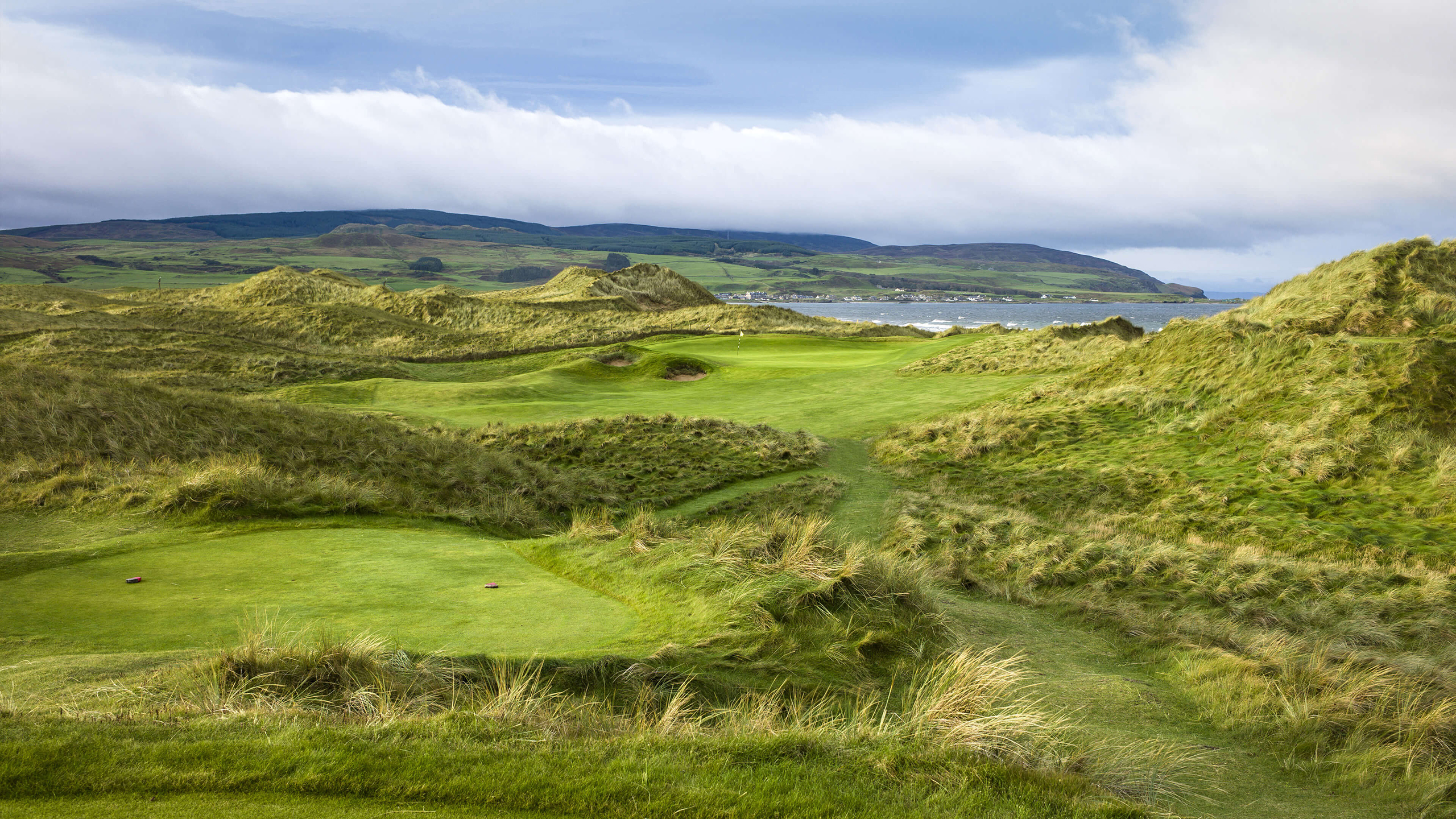Our Community Efforts
Southworth is constantly evaluating the ongoing operation of each of our private communities as it relates to impacts on the environment. We always want to be good stewards and protectors of the land we inhabit. Our team includes a director of sustainability who is passionate about lessening our environmental footprint, reducing wasted resources and implementing innovative processes across our portfolio. It also includes adopting a “sustainability-first mindset” from the onset of any new project, development or initiative.
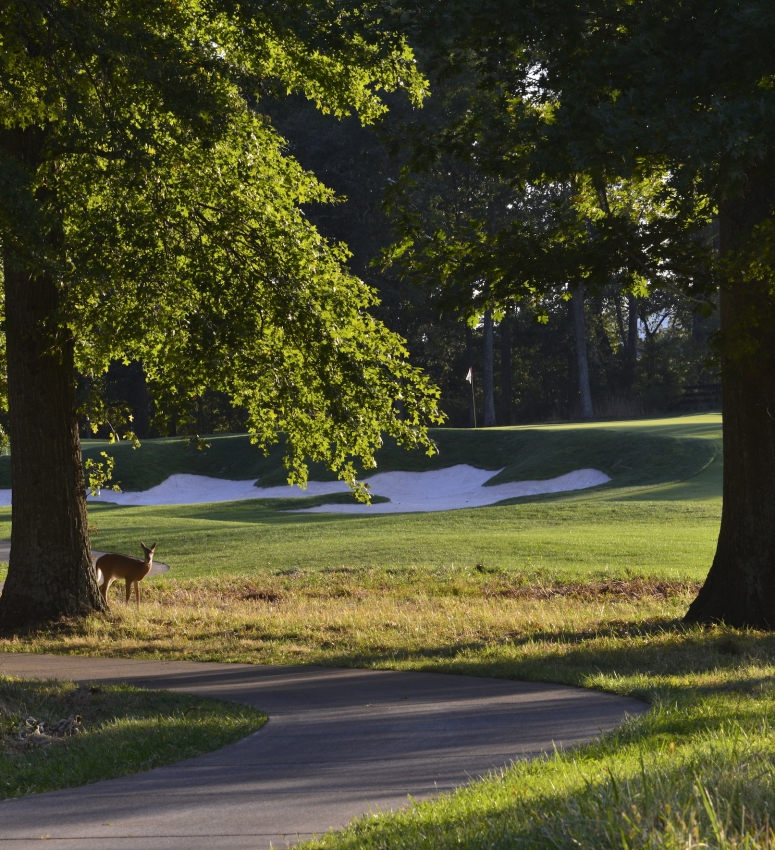
Audubon Certification
Creighton Farms has been a proud Audubon Certified course since 2008, and our golf maintenance team maintains that certification by being ever-diligent in pursuing environmental best practices. We rely almost exclusively on annual rainwater captured by ponds and spot irrigation to make watering the greens a truly regenerative system. Our targeted chemical application makes space for more growth of native plants which supports local and migratory wildlife that may be losing habitat elsewhere, such as milkweed for monarch butterflies and maintained tree cover for birds, including housing for resident hawks and bald eagles.
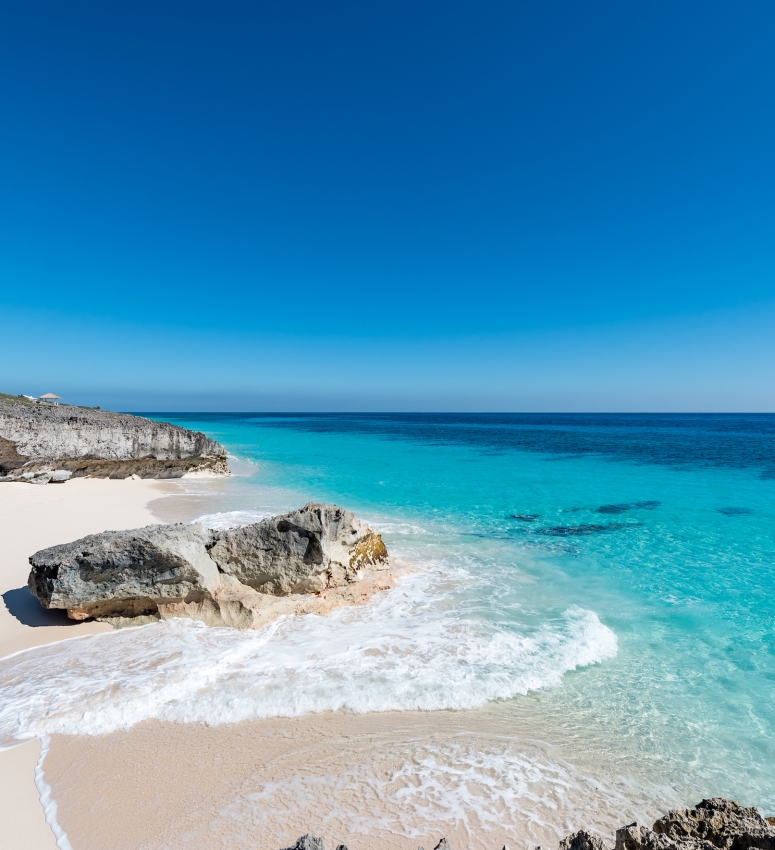
Protecting Precious Water
Our clubs rely as much as possible on annual rainwater captured by ponds and reductions in irrigation of landscape outside of the greens to make watering the greens a truly regenerative irrigation system. Reducing irrigation further allows the landscape to return to a more natural state while decreasing reliance on backup groundwater resources. At The Abaco Club, our large reverse osmosis system not only supplies clean drinking water for the entire Abaco property but also services our neighboring town of Cherokee. Our system delivers renewable clean drinking water to Cherokee and relieves pressure on limited naturally occurring freshwater resources.
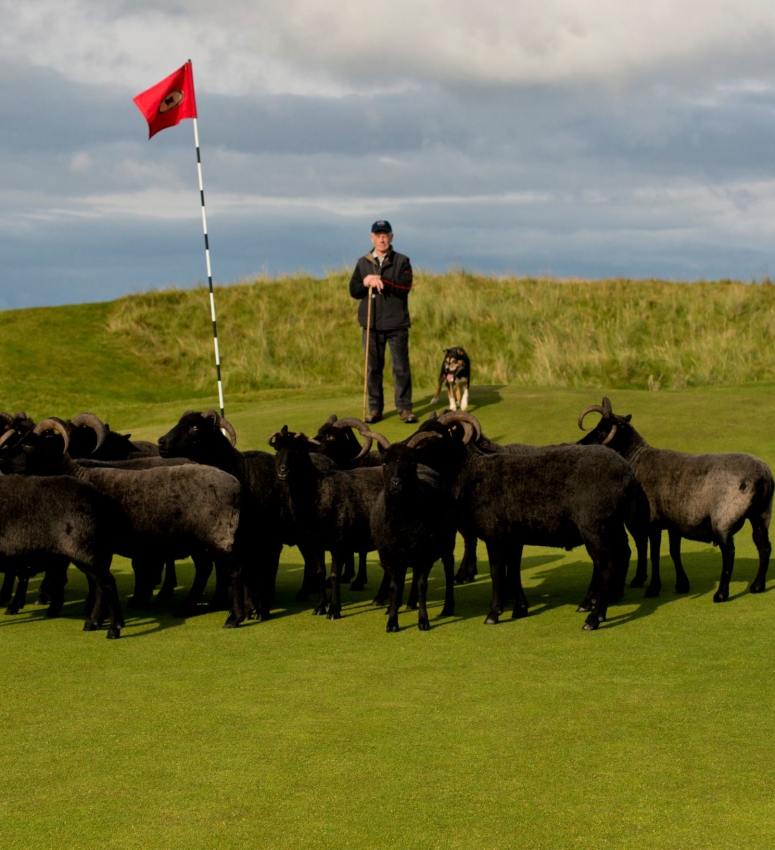
Honoring SACRED Ground
Machrihanish Dunes is one of the most sustainable golf courses in the world—it was the first 18-hole golf course to earn a GEO certification in the United Kingdom. It is also the only course successfully created on a Site of Special Scientific Interest (SSSI). Because of the fragility of this pristine coastal environment and in order to preserve the unmatched natural beauty of the site, the course was built and is maintained with the lightest touch possible. Of the 259 acres on which the course sits, only seven–yes, seven–were disturbed during the construction of the course. Only the tees and greens were shaped. The fairways upon which golfers tread are just as they were found, only mown, shorter and optimized for golf. Apart from tees and greens, the course is pesticide-free and relies on rainwater instead of traditional water irrigation systems. To top it off, we utilize some of the world’s greenest pieces of lawn maintenance equipment—a small herd of local sheep who graze and keep the rough at bay.
Machrihanish Dunes received GEO Certification for creating and maintaining a sustainable golf agenda while fulfilling GEO’s rigorous assessments for maintenance and management practices at the most comprehensive eco-levels. Since our stewardship began, the diversity in plants and animal species has exploded–with many varieties of orchards, fragile species of ground-nesting birds, and several species of larger fauna having reappeared that are now thriving. Recently, we’ve seen the historically threatened Sand Martin flocks return to the natural bare sand areas of the course.
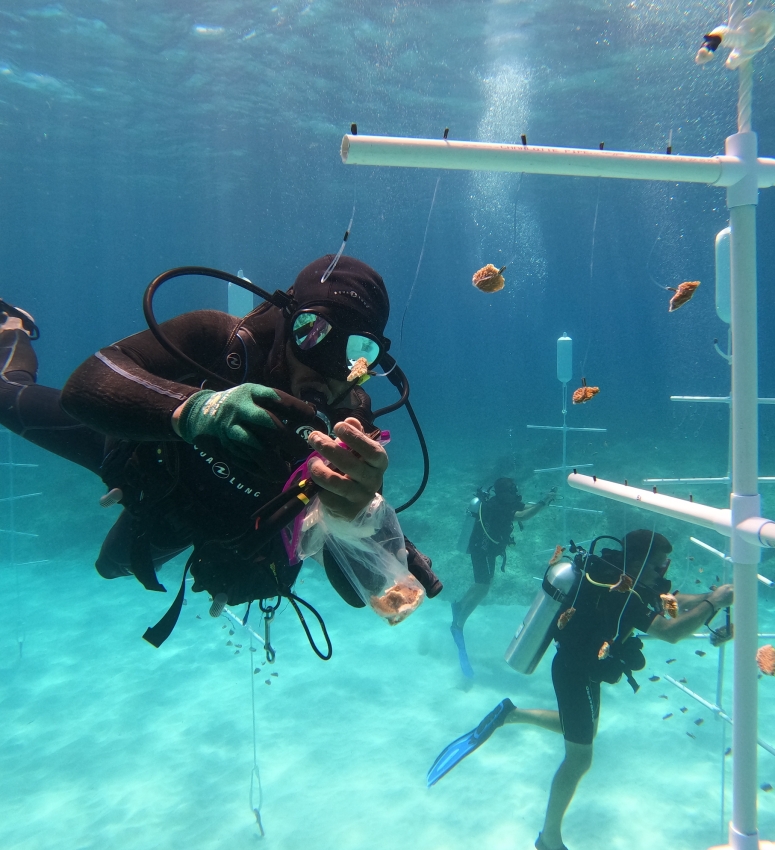
Restoring Endangered Coral
The Abaco club entered into a partnership with the Perry Institute for Marine Science and their Reef Rescue Network to create our very own Winding Bay Coral Nursery. As part of our commitment to marine conservation, this project will grow critically endangered Staghorn and Elkhorn Coral to help restore and preserve our precious ecosystem. The corals will grow in the nursery and be maintained by scuba divers. Once the corals grow large enough, they will be pruned and outplanted onto our coral reefs.
sustainability at a glance
%
Our target percentage of organic food waste diverted from landfills across our four largest clubs by 2025
$1. Million
Amount raised in philanthropic efforts across four major Southworth properties in 2023
The number of single-use plastic water bottles we plan to eliminate across our four largest clubs in 2025
The approximate number of resident sheep working to trim the grass at Machrihanish Dunes
Italian honey bees pollinating flowers and food crops in residences across 2 beehives at Renaissance
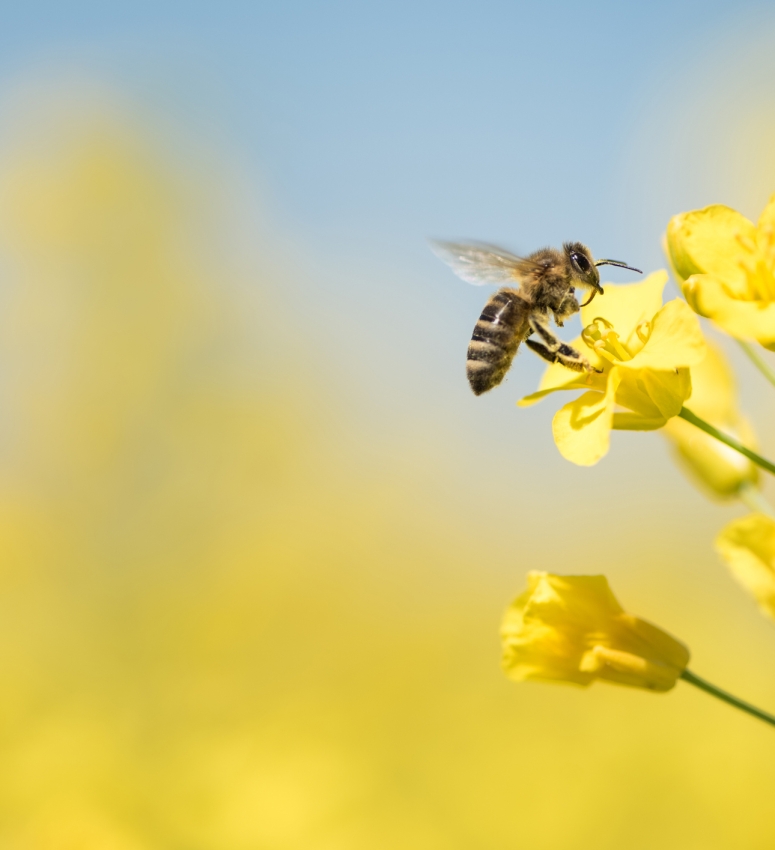
Biodiversity Support Efforts
We are committed to the protection of native plant and wildlife species at our clubs, and make conscious decisions to reduce negative impacts. At Willowbend and Creighton farms, we promote growth of native plants that support local and migratory wildlife that may be losing habitat elsewhere, such as milkweed for monarch butterflies and maintain tree cover for birds, including housing for resident hawks, bald eagles and osprey. At Renaissance, we are working with a Boston-based company on rebuilding honeybee colonies—honeybees are critical to the human food chain, pollinating 75% of our crops. And at The Abaco Club, we actively protect the habitat and nesting areas of our beautiful club icon—The Abaco Parrot.
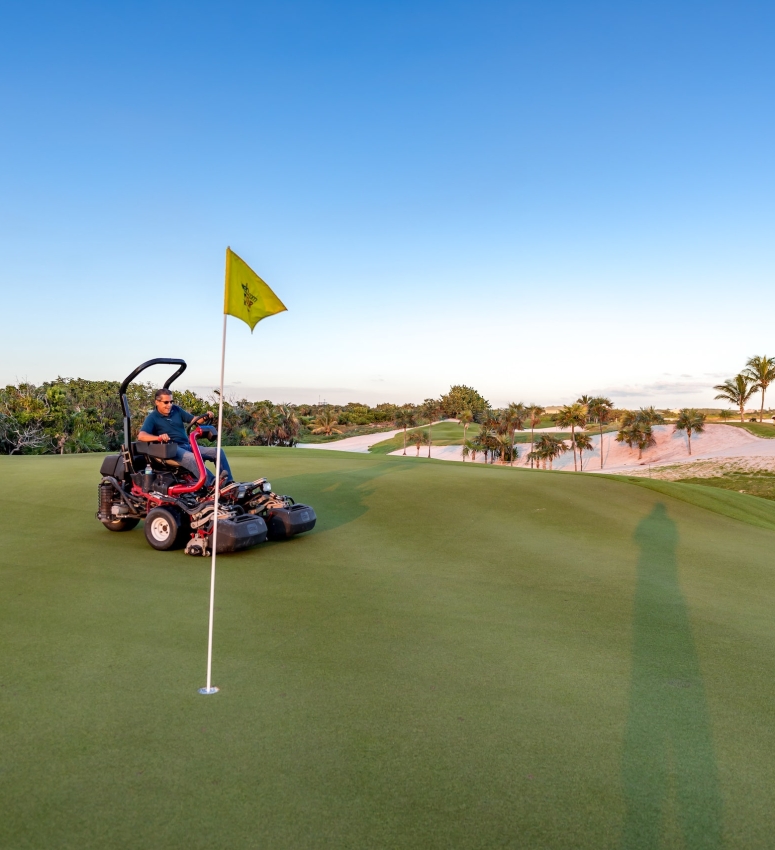
Golf Maintenance
Our golf maintenance teams are ever-diligent in pursuing environmental best practices. We consistently strive to reduce the use of chemicals by practicing spot application of fertilizers, pesticides and herbicides, and using organic products whenever possible. This practice nearly eliminates the runoff of any harmful chemicals into our water systems. Even our greens waste does not go to waste. All landscape and greens clippings go to a composting area in the back of house where in a few years it turns into soil re-used on site, creating a truly circular landscape system.

Plastic Use Reduction
A 2018 study by McKinsey found that 5-10 million metric tons of plastic waste ended up in the ocean, adding to the reality that plastic now makes up 80% of marine debris. We want to embark on a more circular model, reusing water bottles whenever possible. In 2020, the average US consumer drank over 45 gallons of bottled water. Switching to reusable bottles could reduce plastic water bottle waste by 340 plastic water bottles per person annually! Our clubs and communities can have a major impact on the amount of plastic ending up in the landfills and ocean.
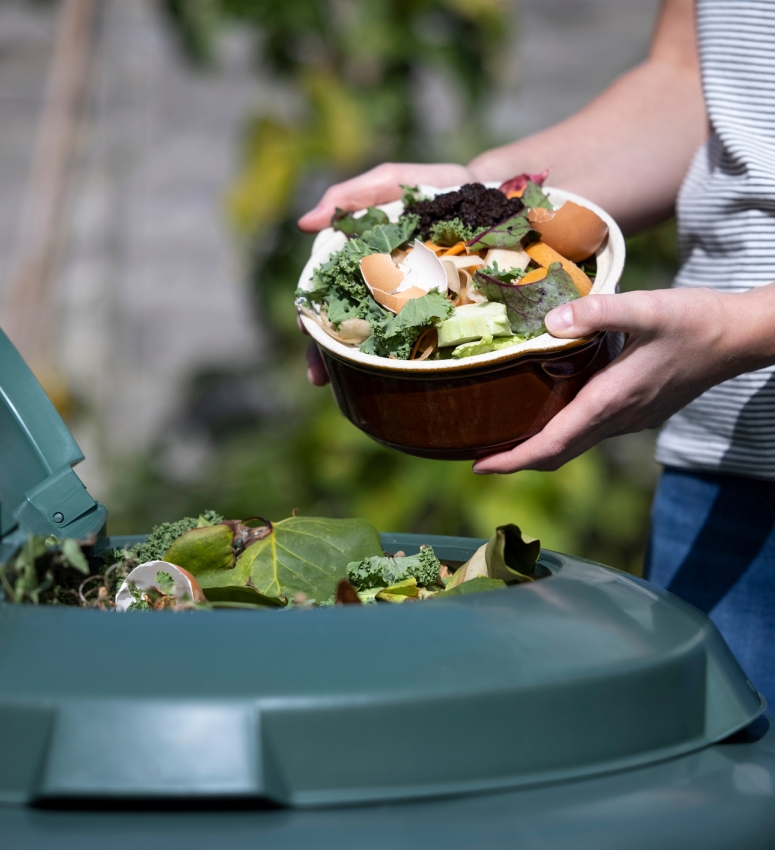
Organic Waste Management
Approximately one-third of all human-produced methane in the US comes from landfills. Diverting even just 25% of food and organic waste sent to landfills to compost facilities would reduce associated greenhouse gas emissions by 30%. Just by improving our recycling practices and introducing compost services our clubs and communities could massively decrease our carbon footprint in our community.
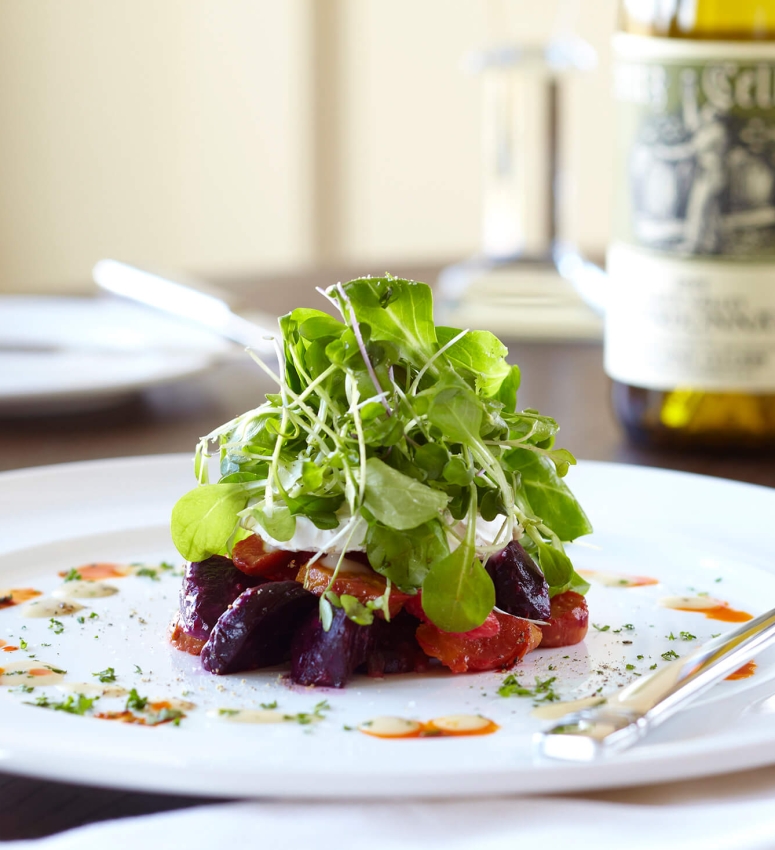
Food Sourcing
Our culinary team at The Abaco Club has made great strides in the sustainability of our restaurants and food services. We source local and organic herbs, produce and eggs from our own hydroponics garden and from Driftwood Food Company’s hydroponic farms in South Abaco. We use local and organic chickens from Abaco Big Bird Family Farm and have developed close working relationships with local fishermen to source native and seasonal seafood. Resulting waste from our food services is collected and sent to local animal farms for compost to create a truly circular food system at The Abaco Club.
